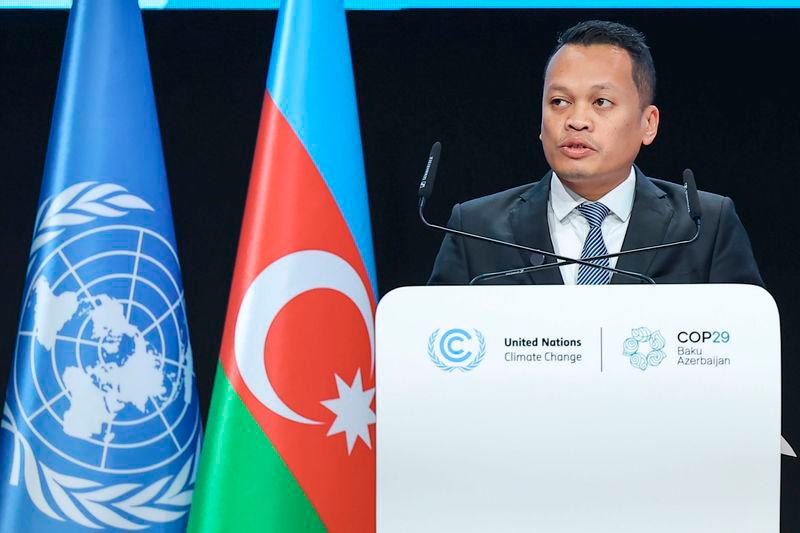BAKU: As ASEAN Chair for 2025, Malaysia will prioritise climate change as a key regional agenda, aligned with the theme of ‘inclusivity and sustainability,‘ said Minister of Natural Resources and Environmental Sustainability (NRES) Nik Nazmi Nik Ahmad.
He highlighted that, as Chair of the ASEAN Working Group on Climate Change from 2022 to 2025, Malaysia has the opportunity to strengthen regional cooperation on climate action.
“Malaysia plans to present the ASEAN joint statement on climate change at the United Nations Framework Convention on Climate Change Conference of the Parties (COP30) in Brazil,“ he told Bernama ahead of the conference.
Nik Nazmi also noted that the ASEAN Carbon Credit Framework, an initiative led by the private sector through the ASEAN Business Advisory Council, aimed at standardising carbon credit practices across member countries, focusing on Thailand, Singapore, and Indonesia.
He emphasised that this initiative is key to promoting regional carbon trading and supporting Malaysia’s National Carbon Market, in line to reduce greenhouse gas emissions intensity by 45 percent by 2030 under its Nationally Determined Contribution.
Nik Nazmi said ASEAN is rich in diversity but shares common challenges in climate change. Therefore, member states that have already implemented specific climate policies can serve as references for others.
He added that the ASEAN Power Grid (APG) initiative, led by the Ministry of Energy Transition and Water Transformation, is a key agenda to be promoted.
“The APG was discussed 20 years ago, and with rising energy costs and the increasingly urgent issue of climate change, it has become more relevant now,“ he explained.
He pointed out that European experience shows that regional grids support the optimal use of renewable energy. For instance, when there is high wind energy production in Britain, it can be sold to Europe.
“If we can use the APG for energy trading, this is something Malaysia will highlight, considering our strategic location at the centre,“ he added.
Nik Nazmi said that clear national policies such as the National Energy Transition Roadmap and the New Industrial Master Plan 2030, along with political stability, will attract more green investments.
He explained that this is due to investors being increasingly focused on countries with green energy in their markets, as they are under pressure to meet net-zero targets by 2050.
Malaysia’s participation in COP29 from Nov 11 to 22 at the Baku Stadium aims to strengthen its commitment to a green economy, as outlined in Budget 2025.
NRES Minister, Nik Nazmi Nik Ahmad led a delegation of 200 Malaysians to the event.
The Malaysian Pavilion at COP29, themed “Shift for Sustainability: Climate Action Now!”, is a collaboration between the NRES and Malaysia Green Technology and Climate Change Corporation (MGTC) as the implementing agency.









